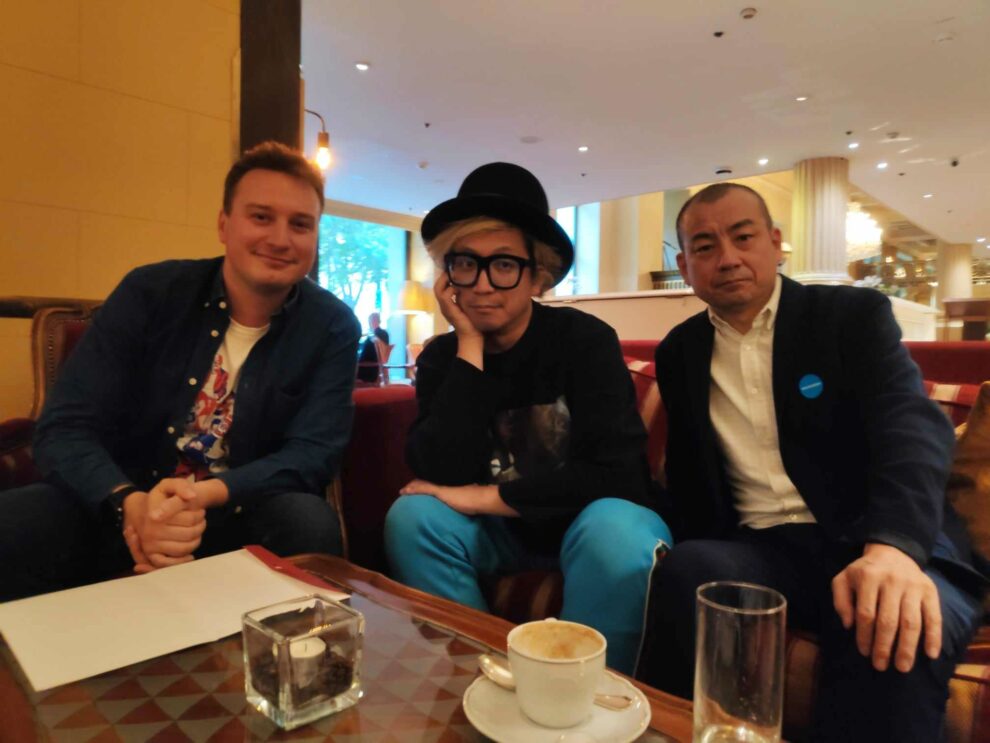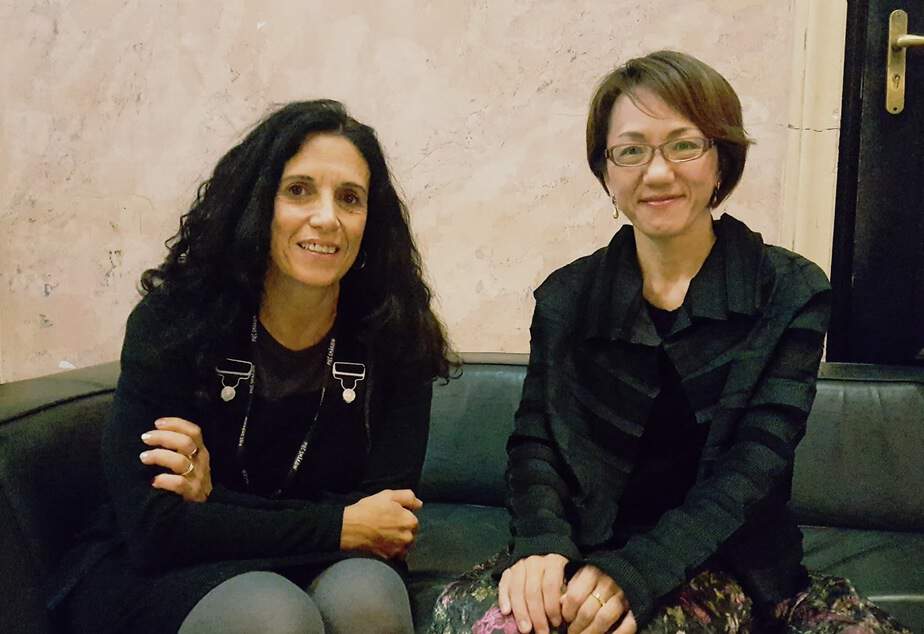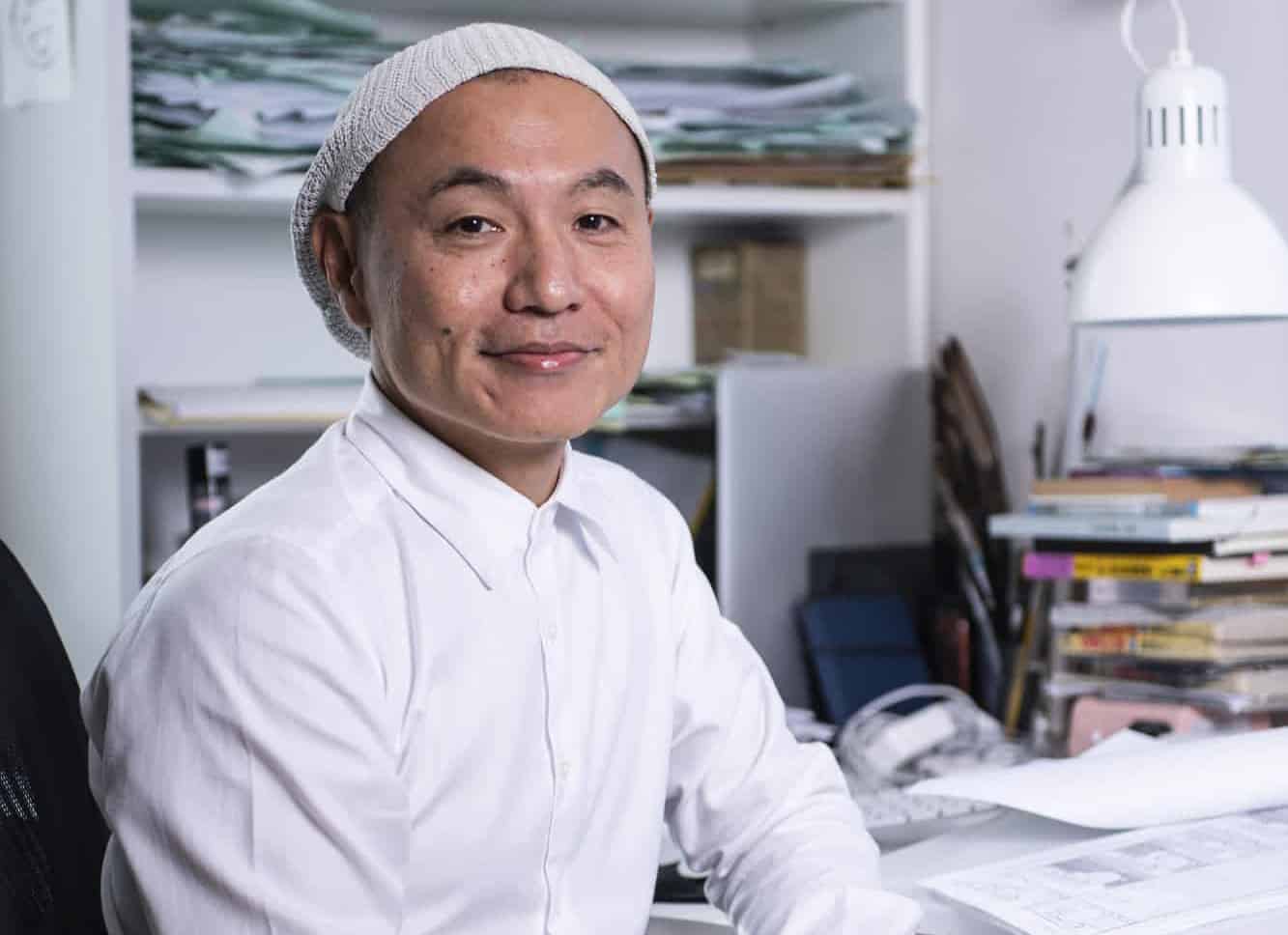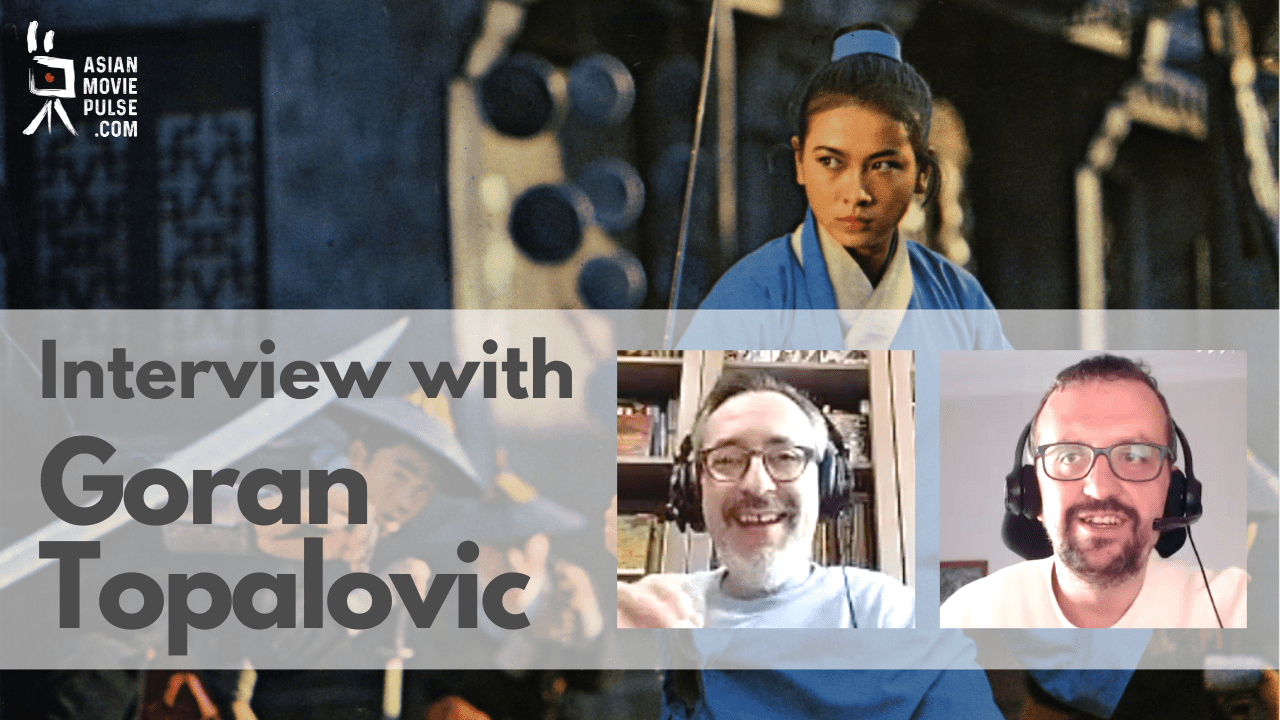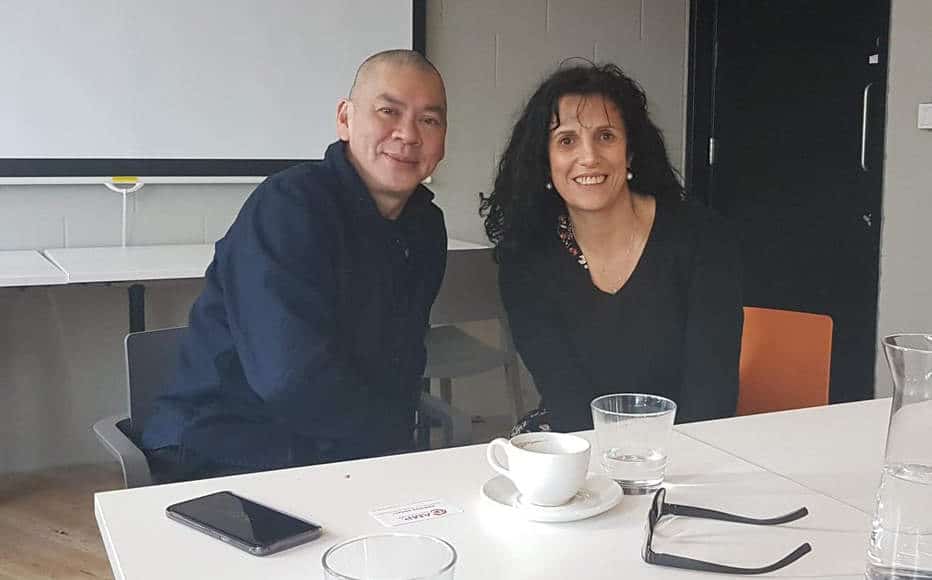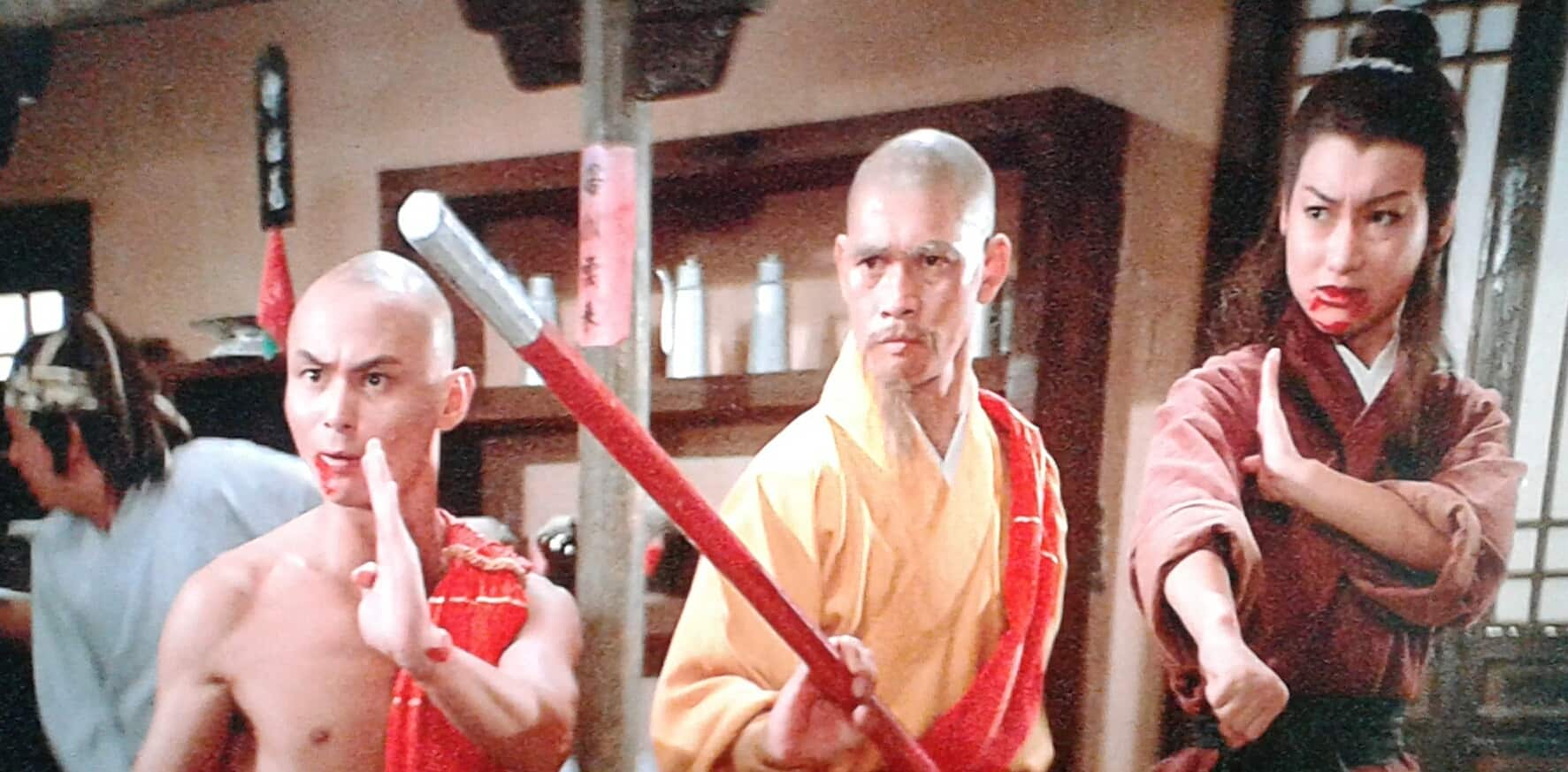On the occasion of the Europe Premiere of his debut film “Ice Cream Fever” at Japannual Film Festival, we sat down with director Tetsuya Chihara and producer Kazuyuki Kitaki (“Under the Turquoise Sky”, 2021) to talk about handbags, big corporate cinema, and female empowerment.
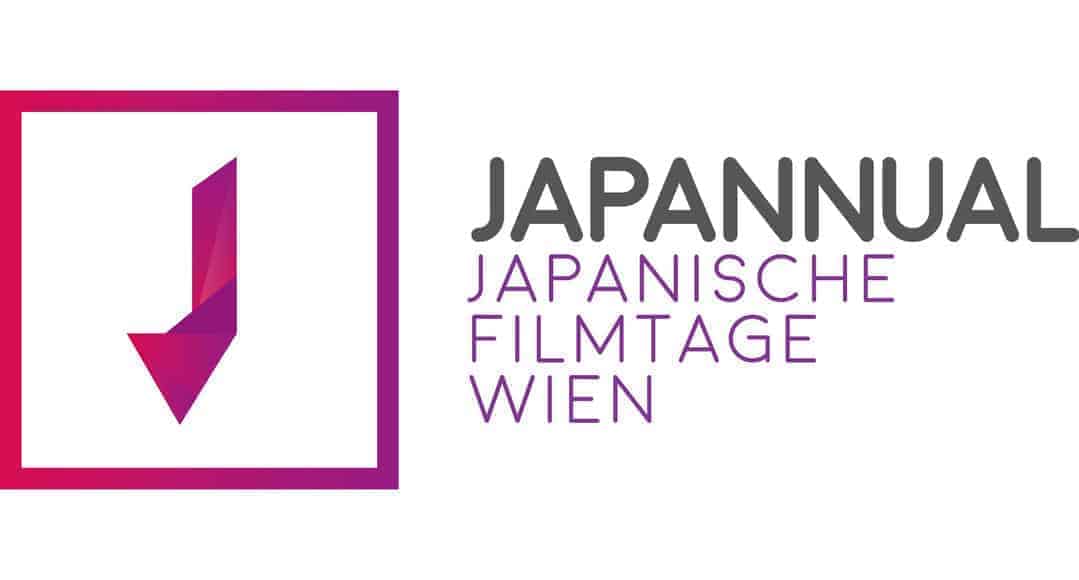
Let's start at the beginning. Can you explain the intro opening titles? On the screen, there is written: „This is not a film“. What does it mean?
My background is in graphic design. At my company „Lemon Life“ we internalized the motto „This is not design“. We use this as a mindset to go beyond the existing patterns and create something new. Like a kind of neverending search for perfection, to stay hungry for the next level. I took inspiration from a Belgian fashion brand called „Delvaux“. Already 140 years ago they wrote „This is not a Delvaux Bag“ on their bags. I shot my film with this idea in my head, too.
There is also the ice cup with the title „Lemon Life“, which is the company that you founded pretty much exactly 12 years ago. As the CEO of this company, how would you describe your profession? Are you a director, designer, or photographer? What was the motivation to start this project and how did the experience that you had from „Lemon Life“ helped you with this project?
Since childhood, I wanted to become a director. I ended up becoming a designer. However, during my professional career, I realized that the border between these two is fluent. The differences between graphic designing and directing are not so big. My work as a movie director felt more like an extension of my previous work as an art director. The previous 12 years at Lemon Life and my experience in graphic design helped me to have another view on filmmaking and made me realize how important style is for movies.
Also, my cameraman, Jun Imajo, comes from the fashion industry and almost all of my crew on set was from Lemon Life. That's why it didn't feel like being in a new environment, but it was a very familiar atmosphere.
Before shooting the feature film, you also did a short movie, „Ice SCREAM Fever“. What was that about?
When we started the project, me and my cameraman were pretty unsure how to start the whole process. We decided to shoot a short movie first to get a feeling for the workflow.
I saw many movies. My favorite directors are Stanley Kubrick and Wes Anderson. I wanted to do something in this direction, but very early in the making of my film, I realized that this was not possible. Instead, I focused on doing my own thing and not trying to copy someone else. I experimented a lot with shaky camera, autofocus, and blurry effects to recreate the natural visual perception of the human eye. I learned that these techniques can underline the emotional state of my characters.
Check also this article
In the film there is a big focus on decoration. Do you have a favorite piece that is used in the film?
Definitely the ice cream.
I liked the way you used the earrings to tell the story between Yu and Miwa. Was this also in the original short story?
Kawakami's short story is simply about the ice cream shop. The idea for the earrings came from me.
How did Mieko Kawakami influenced you? How much did you change from the original story?
I met her 15 years ago when I did a book design for her. Since then, we have become good friends and talk a lot about movies and give each other recommendations. At some point, it felt natural to approach her and propose my idea about making one of her short stories into a movie. She instantly said yes.
Concerning the script, I mainly worked with Masashi Shimizu. But before writing the actual script, I brainstormed a lot with Mieko Kawakami. For my film, she had the idea to change the cast into an all-female cast. Her short story was about the relationship between a man and a woman and she proposed to replace it with a same-sex love story.
Why?
Mieko Kawakami is not fond of men. She criticizes the way women are treated in Japan. For example, in the subway, you have warnings for women to be careful of male harassment. This is the wrong communication. The signs should address the men, telling them not to prey on women.
It shows that we are still living in a man's world. In many places, especially in the workplace, women are measured by male standards and have to obey these invisible rules that society puts on them. Therefore, Kawakami wishes for a world in which women can live out their lives without having to deal with these judgments and have an identity on their own.
So, this is also a film about female empowerment?
Yes. Gender equality in Japan is always tied to numbers and never really meant by heart. Companies are forced to fulfill a certain quota, not because they truly support the idea behind it. There is a missing consciousness in society. Those are things that I learned in the conversations with Kawakami.
She got this idea of shifting the focus more on the female perspective from a song by Yumi Matsutoya, which is about a woman after a break-up, who realizes that she no longer depends on him and feels the freedom of being independent. I put a similar sequence at the end of my film.
When you developed the script, did you already have the actresses in mind for the characters?
Except for Matsumoto Marika, I had all of them planned for the cast. I had no vision for her role at first and was unsure how to present her character. I had already worked with Serena Motola in the past („Tokyo Design Story“ 2020).
How long did you shoot the movie?
Three weeks in total. Since it was an independent production, we had no more time. Otherwise, we would have run out of money.
Was it difficult to finance the project?
That was the hardest part. Big commercial productions aim to make a profit. They are forced to have a script that is easy to understand and famous actors. I wanted to reach people who are open to my message and try to get them on my side to finance my ideas.
Was this also the reason to choose Utaha for one of the characters?
Utaha was completely unknown when I discovered her. I've chosen her for the role, because of her unique appearance and as a counterpart to the more reserved characters. In the meantime, her music career went through the roof and she is filling the biggest concert halls in Japan now. Utaha released the song „Edison“ during our shot and it became a big hit. The sudden fame also increased the amount of dialogue that I added to her role.
Did you also improvise a lot during the production?
My scriptwriter, Masashi Shimizu, is super creative and flexible. It could happen that he came up with new ideas the night before shooting the scene and the next day the whole crew went with it. The vibe on set was like this and there wasn't a strict plan, which made the whole process very pleasant.
I've read about an event that you organized for this film. You showed the film inside a public bath. How important is the location for a screening? Nowadays people tend to watch movies at home or on their phones. How important are cinemas and are you a cinema goer yourself?
The cinema as a place of community building is very important to me. The biggest problem with watching a movie at home is that you get distracted very easily and often do not pay full attention. In the setting of cinema, you are forced to consume the film with all your senses.
When I did my TV series „Tokyo Design Story“ (2020) I had the setting of watching it at home in my mind. I adjusted the colors and the way of telling my story to the ambiance of a living room. I added more dialogue and explanations and also used different camera styles to keep the attention of the viewer. That's different from a cinema movie, which for example allows me to have one minute of silence.
I think the darkness of a movie theatre is essential. I hope that my work can contribute more to the culture of cinema.
There are many small local cinemas in Japan. Is it difficult for them to survive? Recently there was news about TOHO Cinemas who illegally forced small companies out of the movie distribution sector, only to promote their own movies.
I blame the big companies and their concept of Cineplex for the ruin of movie culture. Revenue is their only goal. The independent scene suffers a lot under these circumstances because the majority of Japanese want to have the big blockbuster experience and are not willing to take a look at smaller locations and their programs.
I was born and raised in Kyoto. When I was a teenager I basically grew up at this cinema called Minami Kaikan, which had 3 different movies per day. Unfortunately, after 55 years, the cinema had to shut down. I was lucky enough to have „Ice Cream Fever“ shown there as one of the last screenings.
How can you oppose the big studio system?
First and foremost, you have to educate the people about the importance of culture. People see movies only as a form of entertainment, but you have to show them the tradition that comes with it. On top of that, there is a lack of interest in the world outside of Japan. Countries like South Korea have the urge to show themselves to the world because their film market also depends on foreign revenues. In Japan, there is a different situation. Due to the large population, the national sales are good enough for the companies. I call this a system of self-content, which is ultimately doomed.
That's why you have to take a look at the education system and have to start with the youth to bring change.
Kazuyuki Kitaki: There is already the concept of community cinemas, which invite school classes. This is not organized by the big distribution companies but by small agencies to show their independent productions.
Tetsuya Chihara: I hope that I can organize these screenings in Shibuya, too. I am in contact with the mayor of Shibuya to push the agenda and that children go to the cinema and the museum at least once a month to learn more about culture. I want it to be like any other kind of subject at school.

„Drive My Car “ won the Oscar last year. Did you feel any change as a director, or as a producer? Is there more attention on Japanese films now?
Tetsuya Chihara: I don't think the win led to any major changes. Of course, there were more people attracted to see the film because of the news headlines. But it didn't change the daily consumer behavior of the average Japanese, who is eager for simple entertainment. Despite the positive aspect that an independent production like „Drive My Car“could win over the Oscar jury, the mainstream audience and the industry were mainly untouched by this event.
Kazuyuki Kitaki: The success of „Drive My Car“ had a big influence on me. I know the production company behind this movie, Bitter's End, and I was so happy for them to outwit the other big companies.
I was in Taiwan recently and I got so many compliments for Japanese movies. Many people told me that they feel like the Japanese film industry is very exclusive and not willing to share their cultural property with other nations. This originates from the fact that many actors are bound to the strict policy of their agencies. It frustrates me, that we build up our own barriers instead of sharing.
Also, the domination of Netflix and the obsession with the US that many Asians have are hindering certain positive efforts to promote Japanese films. At the same time, big Japanese streaming platforms like “TVer” are blocking out foreign users, although the opening of these services would be a huge opportunity for an international audience. It saddens me because I think if they had the courage to open up, the view counts on the Asian market would be even higher than Netflix.
What are your next projects?
Tetsuya Chihara: I am working on a script already. I have found my style in „Ice Cream Fever“. The positive feedback I got so far, assures me to follow up on that path. I want to do two or three other films in that way. I also want to shoot them in Shibuya and I hope I will get the financial support of the district since there are not so many films that display Shibuya like I do.
Also, based on the writings of Kawakami?
I met her recently and told her about my script. So there may be some kind of collaboration.
Kazuyuki Kitaki: I am lucky enough to have survived in this tough industry with my independent production company, Magnetize Inc., for more than 10 years now. After all these years, I was finally able to make a revenue with „”Softening…Breath”“ with the cinema ticket sales only. I will continue to work with this director on another project about the prosecution of the Christians in Nagasaki. Right now we are doing location scouting.
One last question. What's your favorite ice cream flavor?
Tetsuya Chihara: Choco Mint.
Kazuyuki Kitaki: Crazy Marble.
Tetsuya Chihara: We especially cooperated with a cafe chain called “Sarutahiko Coffee” to produce exclusive ice cream flavors for our movie. When we released our movie, they started selling these new flavors in all of their facilities. The ice cream shop in the movie is also a remodeled shop of this chain based in Ebisu.
Thank you very much!


